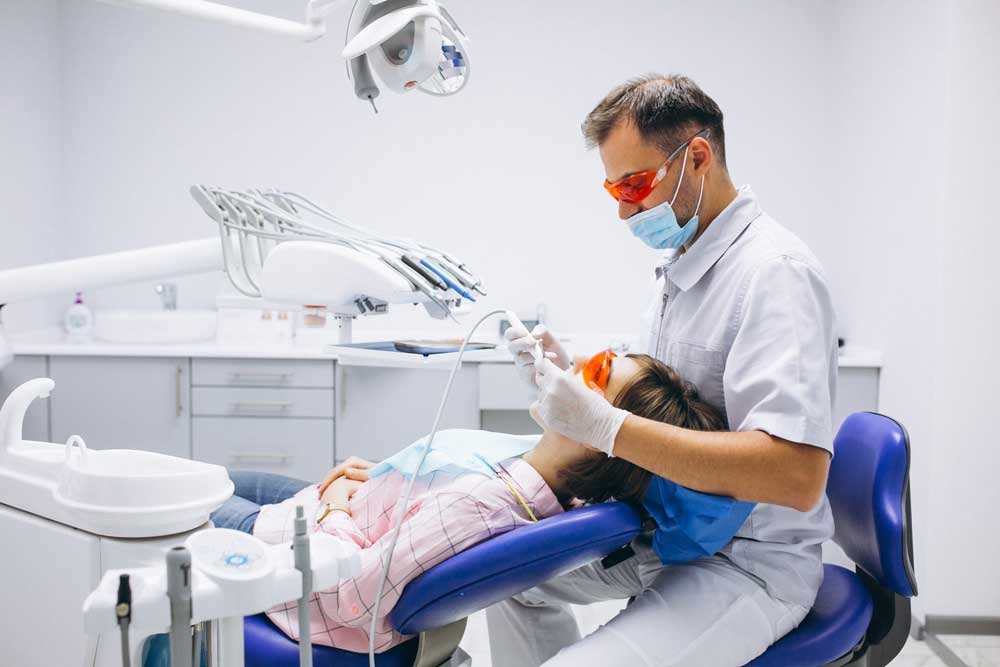Dental anxiety is a common concern for many people. The idea of sitting through multiple procedures in a dentist’s chair can be overwhelming. But what if you could get everything done in one go, while comfortably asleep? Welcome to the world of sleep dentistry. In Melbourne, more and more people are discovering this stress-free approach to dental care. But can you really have multiple dental procedures done in a single sleep dentistry session? Let’s dive in and find out.
What is Sleep Dentistry?
Sleep dentistry, also known as sedation dentistry, involves the use of medication to help patients relax during dental procedures. It’s particularly beneficial for those who have a fear of the dentist, a low pain threshold, or require extensive dental work. Instead of being fully awake and aware, patients are put into a relaxed, sleep-like state, making the entire experience much more comfortable.
How Does Sleep Dentistry Work?
In sleep dentistry, different levels of sedation can be used, depending on the patient’s needs and the complexity of the procedure. These include:
- Minimal sedation: You are awake but relaxed.
- Moderate sedation (conscious sedation): You may slur your words when speaking and not remember much of the procedure.
- Deep sedation: You are on the edge of consciousness but can still be awakened.
- General anesthesia: You are completely unconscious.
Benefits of Sleep Dentistry
Sleep dentistry offers several advantages:
- Reduced Anxiety: Helps alleviate the fear and anxiety associated with dental visits.
- Comfort: Allows patients to be comfortable during long or multiple procedures.
- Efficiency: Enables dentists to perform more procedures in one session, reducing the number of visits.
- Memory: Patients often have little to no memory of the procedure, making it ideal for those with dental phobias.
Common Dental Procedures Done Under Sleep Dentistry
Many dental procedures can be performed under sleep dentistry, including:
- Tooth extractions
- Root canals
- Dental implants
- Crowns and bridges
- Fillings
- Deep cleanings
Can Multiple Procedures Be Done at Once?
Absolutely! One of the significant advantages of sleep dentistry is the ability to perform multiple dental procedures in a single session. This means you can get a root canal, extraction, and cleaning all at once without the need for multiple appointments. This approach is not only time-efficient but also minimizes the stress and discomfort associated with repeated visits.
How to Prepare for a Sleep Dentistry Session
Preparing for a sleep dentistry session involves a few simple steps:
- Consultation: Meet with your dentist to discuss your medical history, current medications, and the planned procedures.
- Instructions: Follow any pre-sedation instructions provided by your dentist, such as fasting before the appointment.
- Transportation: Arrange for someone to drive you to and from the appointment, as the sedation can impair your ability to drive.
What to Expect During the Session
During your sleep dentistry session, you can expect:
- Pre-Sedation: The dentist will administer the sedation and ensure you are comfortable and relaxed.
- Procedure: The dental team will perform the necessary procedures while you are sedated.
- Monitoring: Your vital signs will be closely monitored throughout the session to ensure your safety.
Recovery and Aftercare
Post-procedure, you’ll be moved to a recovery area where you can wake up comfortably. Here’s what to expect for recovery:
- Supervision: You’ll be monitored until the sedation wears off.
- Discomfort: Some mild discomfort or grogginess is normal.
- Instructions: Follow any aftercare instructions provided by your dentist, including taking prescribed medications and avoiding certain activities.
FAQs
- Is sleep dentistry safe?
Yes, when performed by a qualified professional, sleep dentistry is safe.
- How long does the sedation last?
The duration of sedation can vary but typically lasts a few hours.
- Will I feel any pain during the procedure?
No, you should not feel any pain during the procedure.
- Can I eat before my sleep dentistry session?
You will likely need to fast for a few hours before the session. Follow your dentist’s instructions.
- How quickly can I return to normal activities?
You should be able to resume most normal activities the following day, but avoid strenuous activities as advised by your dentist.
Conclusion
In conclusion, sleep dentistry offers a modern solution for those seeking efficient, comfortable dental care in Melbourne. By consolidating multiple procedures into a single session, patients can save time, reduce anxiety, and achieve optimal oral health with fewer appointments.



Comments are closed.